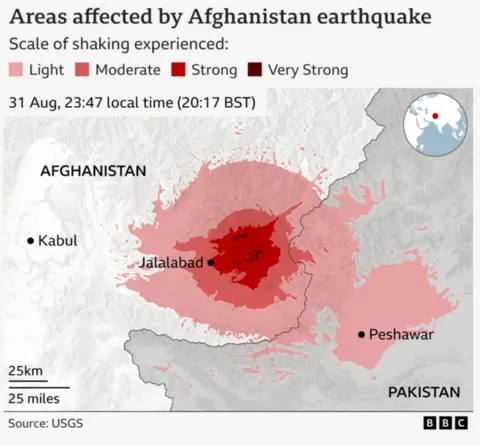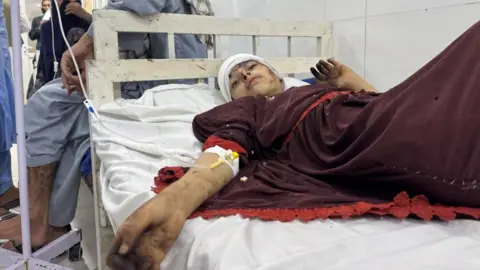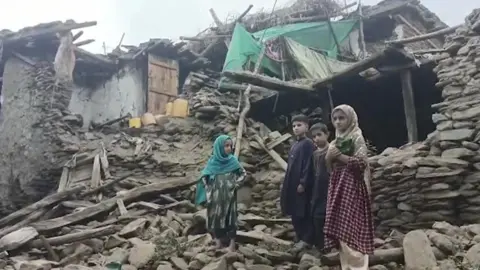High above Kabul, encased within barbed wire and secrecy, the women's wing of a mental health center offers a glimpse into a dire situation. Managed by the Afghan Red Crescent Society (ARCS), the facility is one of the few resources available for women grappling with severe mental health issues. Locally dubbed Qala, or fortress, it has become a sanctuary for 104 women, each with harrowing tales of neglect, violence, and stagnation.
Among them is Mariam*, a woman in her mid-20s who has been a prisoner of this institution for nearly a decade. Victimized by domestic abuse, she endured a tumultuous childhood filled with hardships inflicted by her family. Shunned and eventually homeless, her fate changed when a compassionate stranger took her to Qala. Now, despite her radiant spirit and eagerness to contribute, she finds herself trapped with nowhere to go, as societal norms and a lack of financial independence bind her to the facility.
Another woman, 28-year-old Habiba, reflects a similar plight. Abandoned by her husband after he remarried, she feels a profound disconnection from her children, cut off from familial ties that once provided her a semblance of stability. With no means to support herself, the cycle of dependency continues, as she remains confined within the facility's walls, yearning for her past life.
The centre's staff reveals that many patients have languished there for decades, with some completely abandoned by their families. In a nation where mental health issues are often stigmatized, this facility represents both a refuge and a prison for vulnerable women. With a recent UN report indicating a troubling rise in mental health crises linked to the ongoing stress of living under Taliban rule, the situation seems increasingly dire.
Dr. Abdul Wali Utmanzai, a psychiatrist at a nearby ARCS-run hospital, notes the staggering demand for mental health services, with 80% of his patients being women grappling with economic strife and family breakdown. However, the Taliban's strict regulations regarding women's mobility severely limit their access to care.
The emotional toll is staggering. Recently, 16-year-old Zainab was scarcely able to escape from the control of her family, resorting to desperate measures to find freedom. The tragic stories within the walls of Qala point to an inescapable truth: with every day that passes, the chances for these women to reclaim their lives dwindle.
As the Taliban government claims a commitment to women's rights, the increasing desperation faced by these women reveals a stark reality: without systemic change and tangible support, many will continue to languish in institutions designed to provide care but lacking the freedom they desperately need. The future of women like Mariam, Habiba, and Zainab hangs in delicate balance, tethered to a society that offers little reprieve.
*Names of individuals have been altered to protect their identities.





















